Proverbs from Africa: Timeless Wisdom

The Ancient Wisdom of African Proverbs: A Historical Overview
African proverbs have been a cornerstone of African culture and tradition for centuries. These concise and insightful sayings have been passed down from generation to generation, offering wisdom, guidance, and valuable life lessons. In this write-up, we will delve into the history of African proverbs, exploring their origins, significance, and impact on African societies.
Origins and Significance
African proverbs have their roots in the rich cultural heritage of Africa, with each proverb reflecting the unique experiences, values, and traditions of a particular ethnic group or community. These sayings were often used to convey complex moral and philosophical messages, making them accessible to people of all ages and backgrounds.
- Teaching moral values: Proverbs were used to impart moral lessons, promoting virtues such as honesty, respect, and hard work.
- Preserving cultural heritage: Proverbs helped to preserve African cultural traditions, customs, and history, passing them down to future generations.
- Providing guidance and wisdom: Proverbs offered practical advice and wisdom on various aspects of life, including relationships, conflict resolution, and personal growth.
Impact on African Societies
African proverbs have had a profound impact on African societies, shaping cultural norms, values, and behaviors. These sayings have:
- Promoted social cohesion: Proverbs have helped to foster a sense of community and social responsibility, encouraging individuals to work together for the greater good.
- Influenced literature and art: African proverbs have inspired countless literary works, songs, and artworks, reflecting their significance in African cultural expression.
- Shaped leadership and governance: Proverbs have been used to guide leaders and inform governance, promoting wise decision-making and responsible leadership.
Conclusion
African proverbs are a testament to the richness and diversity of African cultures. These ancient sayings continue to inspire, educate, and guide people across the continent and beyond. As we reflect on the history of African proverbs, we are reminded of the importance of preserving our cultural heritage and the wisdom it embodies.
Inspirational African Proverbs
- "When elephants fight, it is the grass that suffers." (Kenya) - Meaning: When powerful people fight, it is the weak who suffer.
- "A smooth sea never made a skilled sailor." (Ghana) - Meaning: Without challenges, one cannot develop skills.
- "The best time to plant a tree was 20 years ago. The second-best time is now." (Egypt) - Meaning: It's never too late to start something new.
- "When you pray, move your feet." (Nigeria) - Meaning: Faith without action is useless.
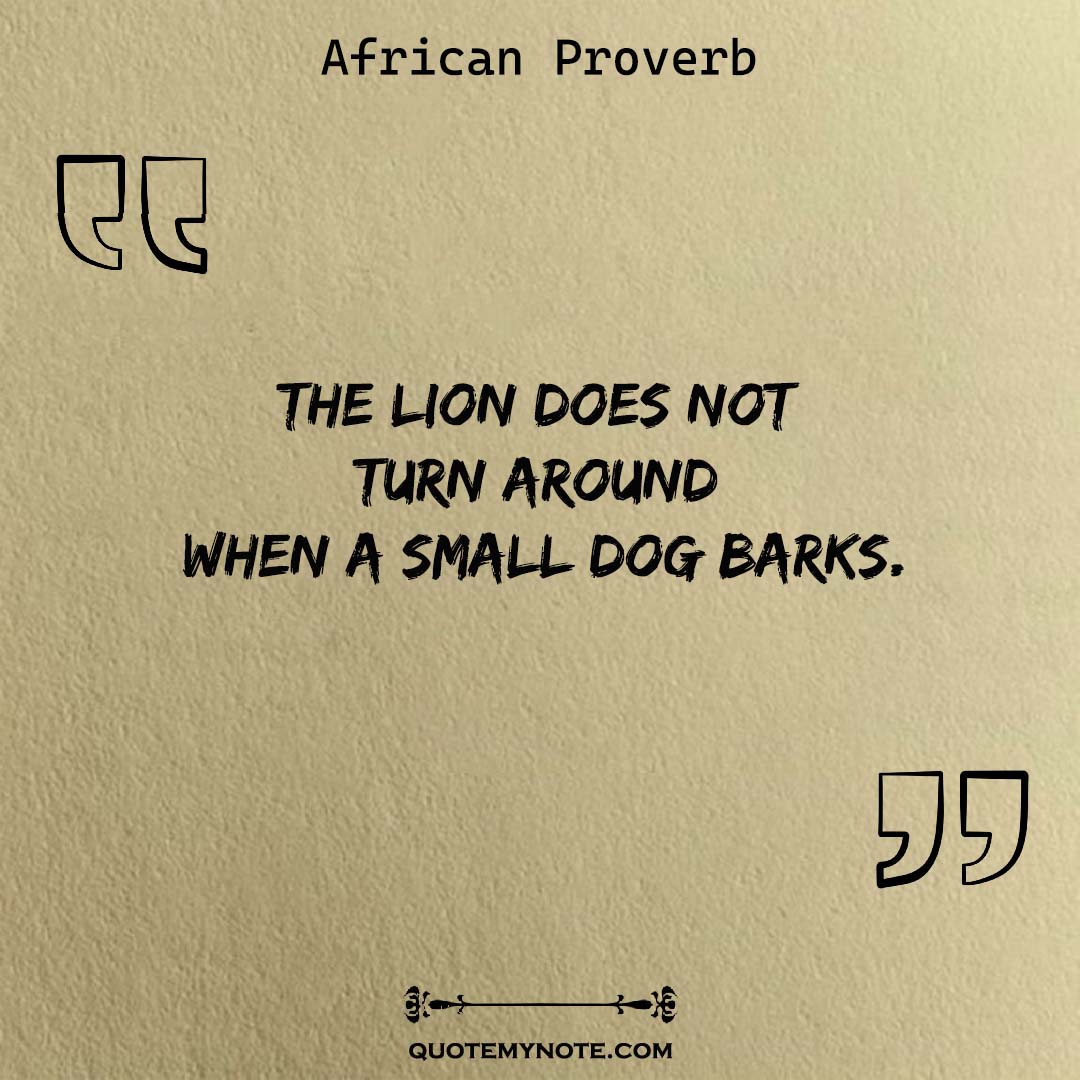
- "A single stick may smoke, but it will not burn." (Tanzania) - Meaning: Unity is strength.
- "The lion does not turn around when a small dog barks." (South Africa) - Meaning: Do not be distracted by insignificant things.
- "A child who is not embraced by the village will burn it down to feel its warmth." (Uganda) - Meaning: Neglecting children can lead to destructive behavior.
- "When the heart is bitter, the tongue is sharp." (Morocco) - Meaning: A bitter heart can lead to hurtful words.
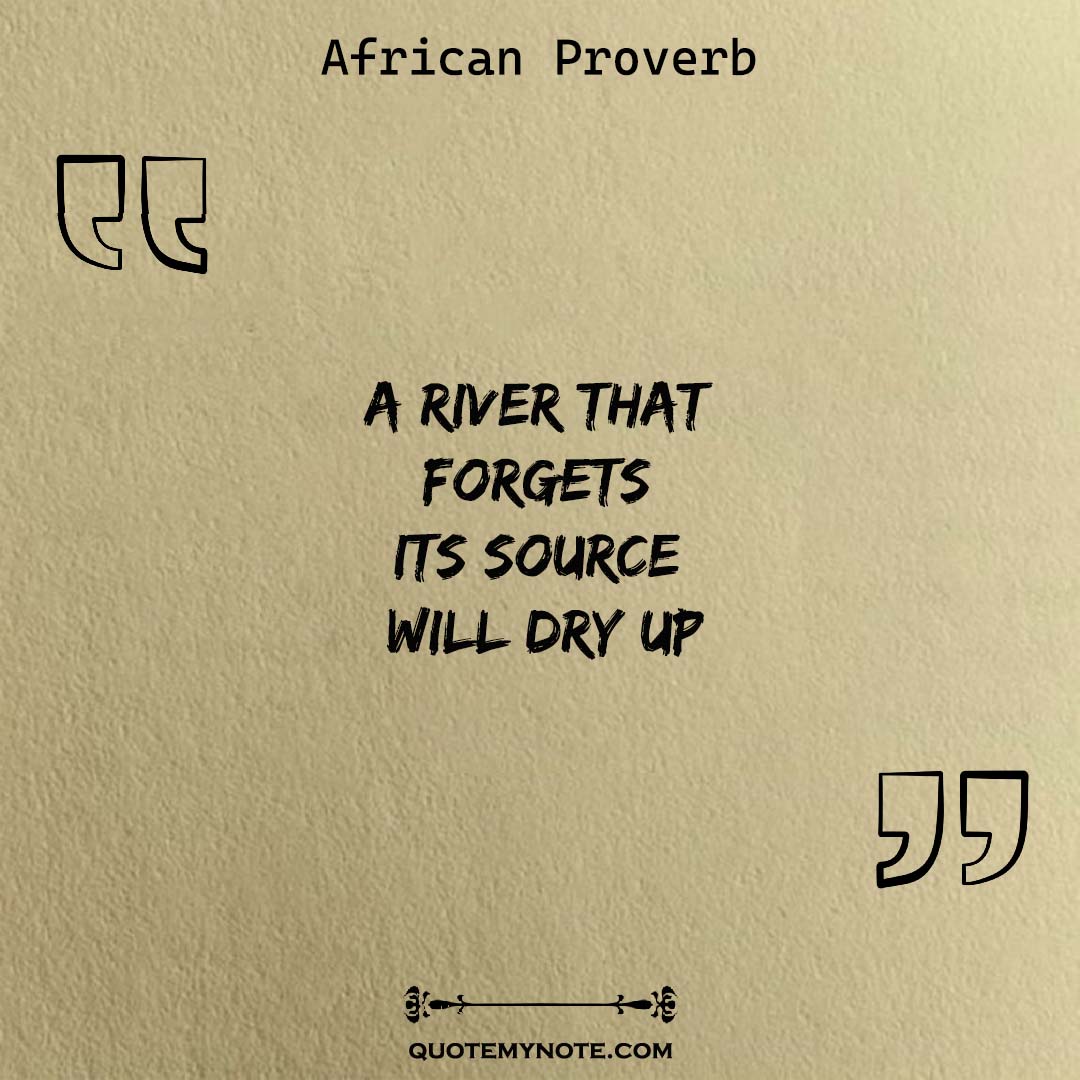
- "The wind does not break a tree that bends." (Ethiopia) - Meaning: Flexibility is key to survival.
- "A family is like a forest, when you are outside it is dense, but when you are inside you see that each tree has its own position." (Cameroon) - Meaning: Families are complex, and each member has their own role.
- "Do not look where you fell, but where you slipped." (Democratic Republic of Congo) - Meaning: Learn from your mistakes.
- "A river that forgets its source will dry up." (Ghana) - Meaning: Never forget your roots.
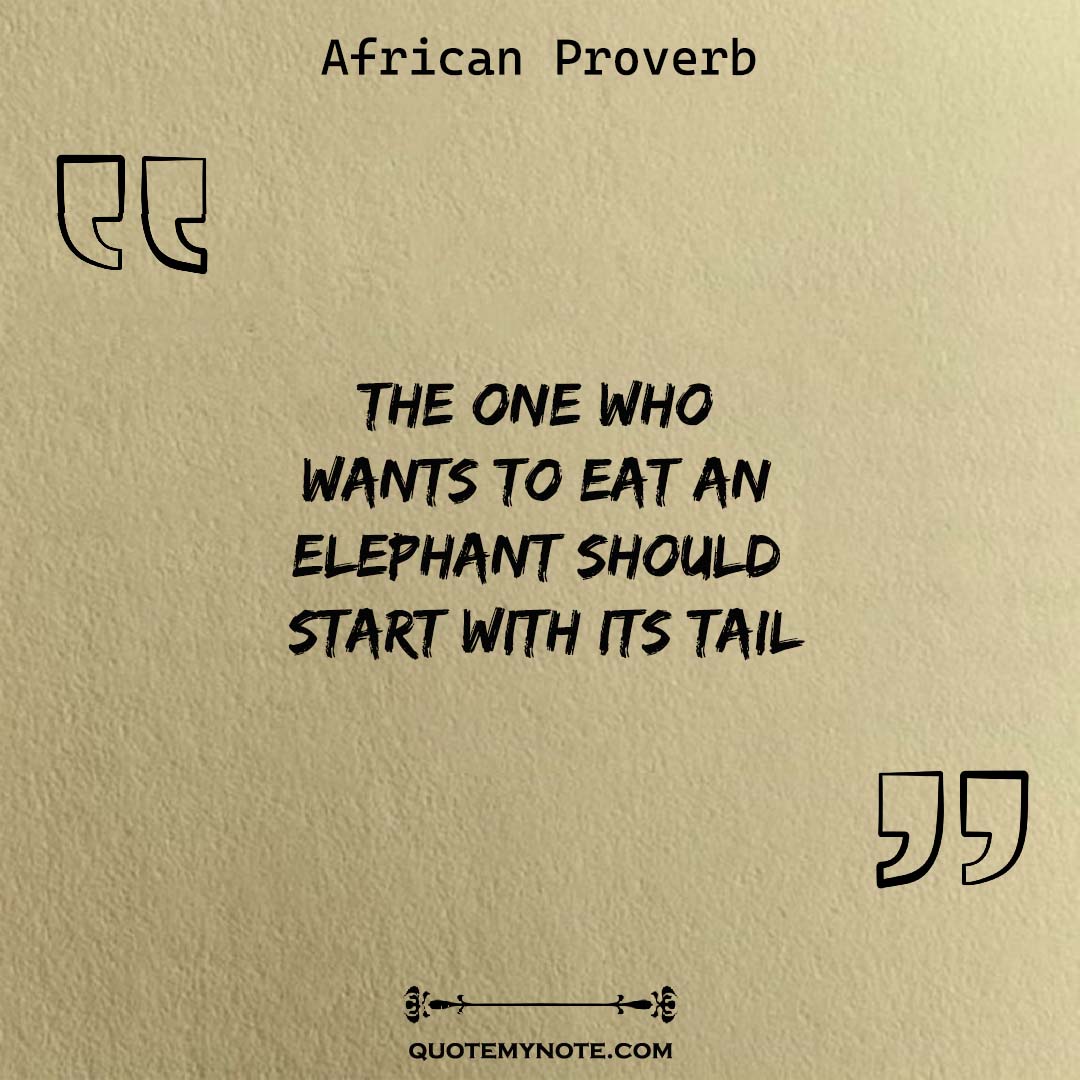
- "The one who wants to eat an elephant should start with its tail." (Mali) - Meaning: Break down big tasks into smaller, manageable parts.
- "A cow that has no horns will never butt." (Zambia) - Meaning: Some people are naturally more aggressive or confrontational.
- "The wisdom of the elderly is like the waters of a river, it flows gently and quietly." (South Africa) - Meaning: Older people have valuable wisdom to share.
- "When a king's palace burns down, the king's subjects are the ones who suffer." (Nigeria) - Meaning: The actions of leaders can have far-reaching consequences for their people.
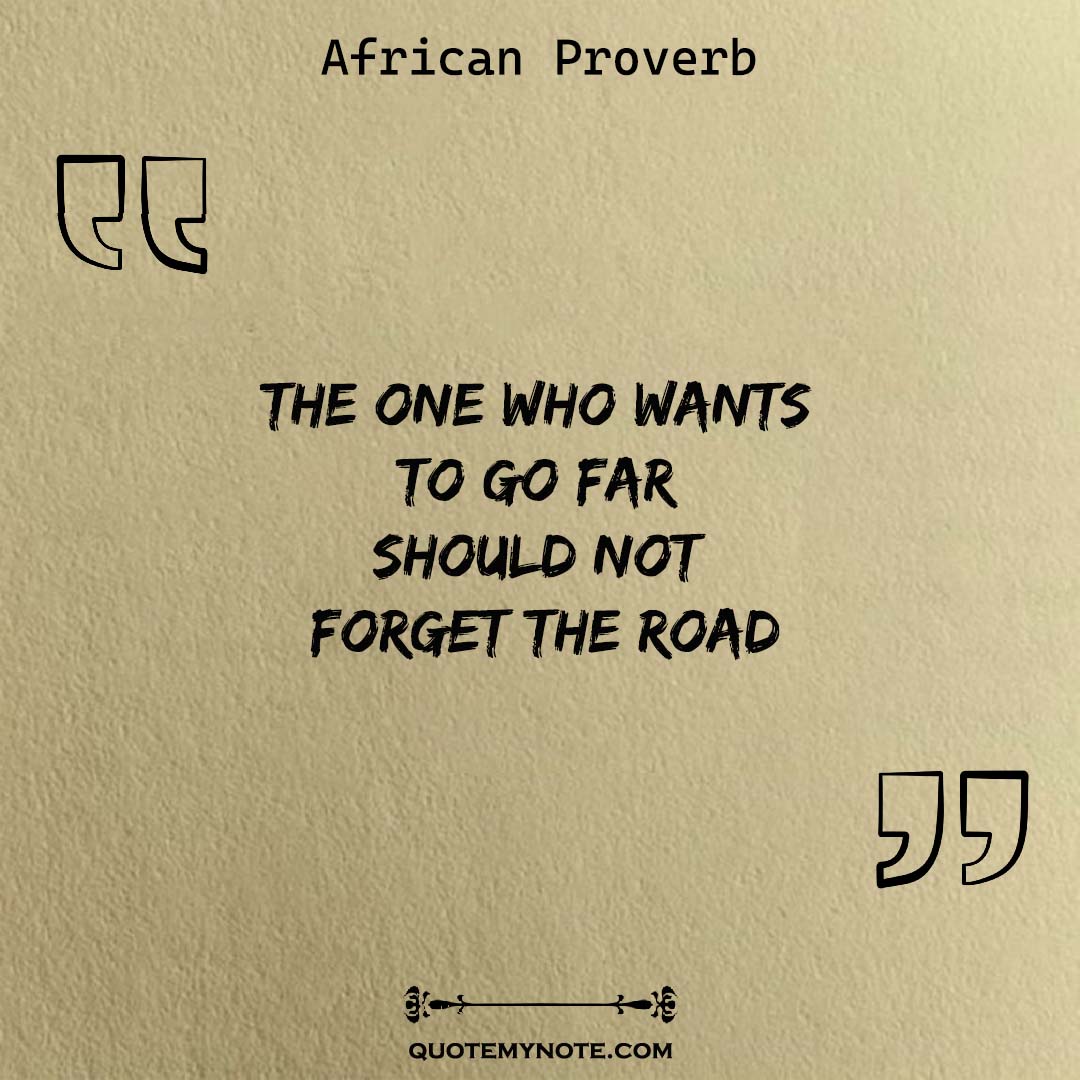
- "The one who wants to go far should not forget the road." (Togo) - Meaning: Remember your past and the journey that has brought you to where you are today.
- "A small ant can carry a large burden, but it cannot carry a large burden alone." (Kenya) - Meaning: Even the smallest person can make a big impact, but teamwork is essential.
- "When the moon is full, the tide is high." (Ghana) - Meaning: When one thing is in abundance, other things will follow.
- "You can hide your face, but you cannot hide your character." (Ethiopia) - Meaning: Your true nature will eventually be revealed.
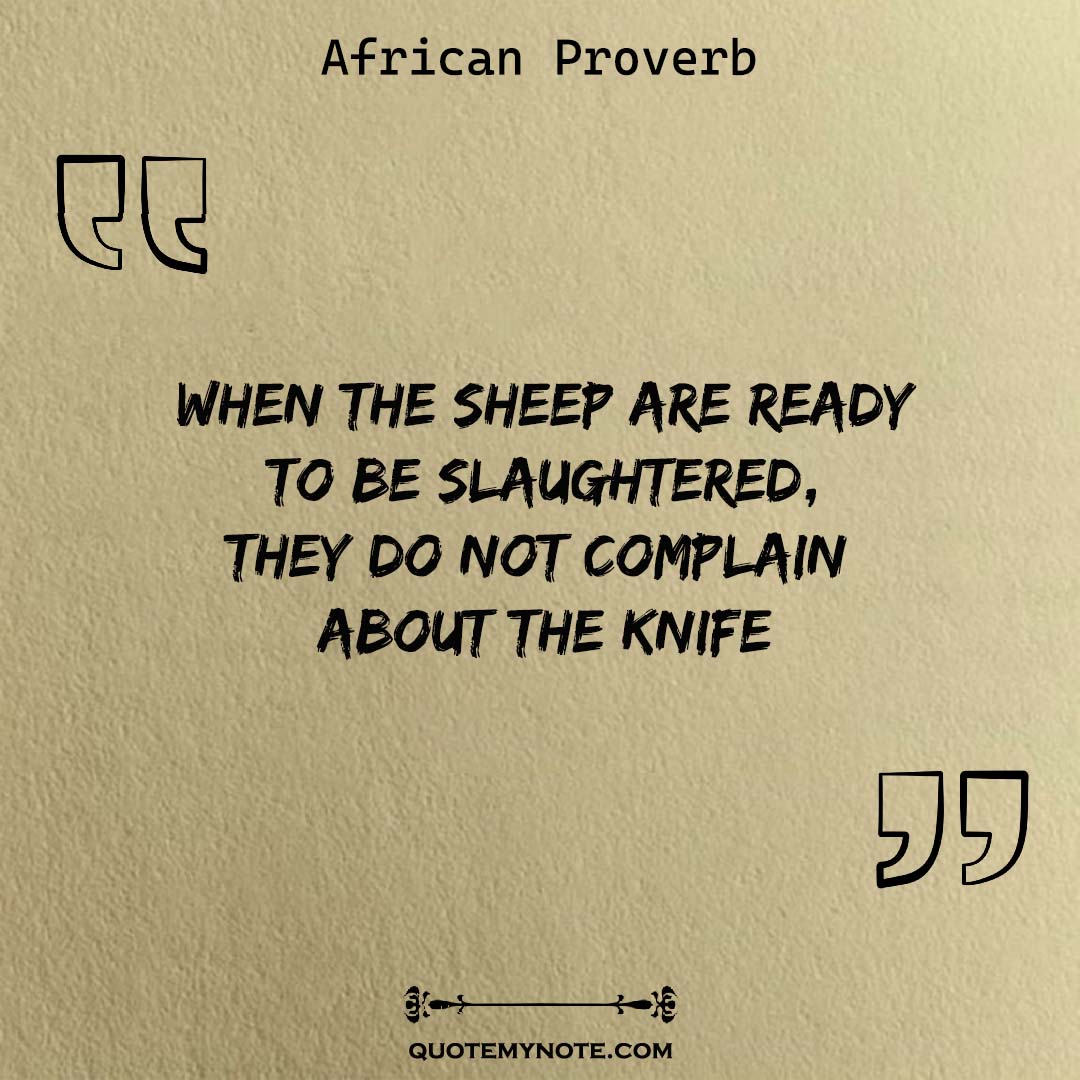
- "The one who asks questions does not lose his way." (Mali) - Meaning: Asking questions is a sign of wisdom and can help you find your way.
- "A man who pays respect to the great paves the way for his own greatness." (Nigeria) - Meaning: Showing respect to others can lead to your own success.
- "When the sheep are ready to be slaughtered, they do not complain about the knife." (South Africa) - Meaning: When your time has come, do not complain about the circumstances.
- "A bird that flies alone will never fly in formation." (Kenya) - Meaning: Working together with others is essential for success.
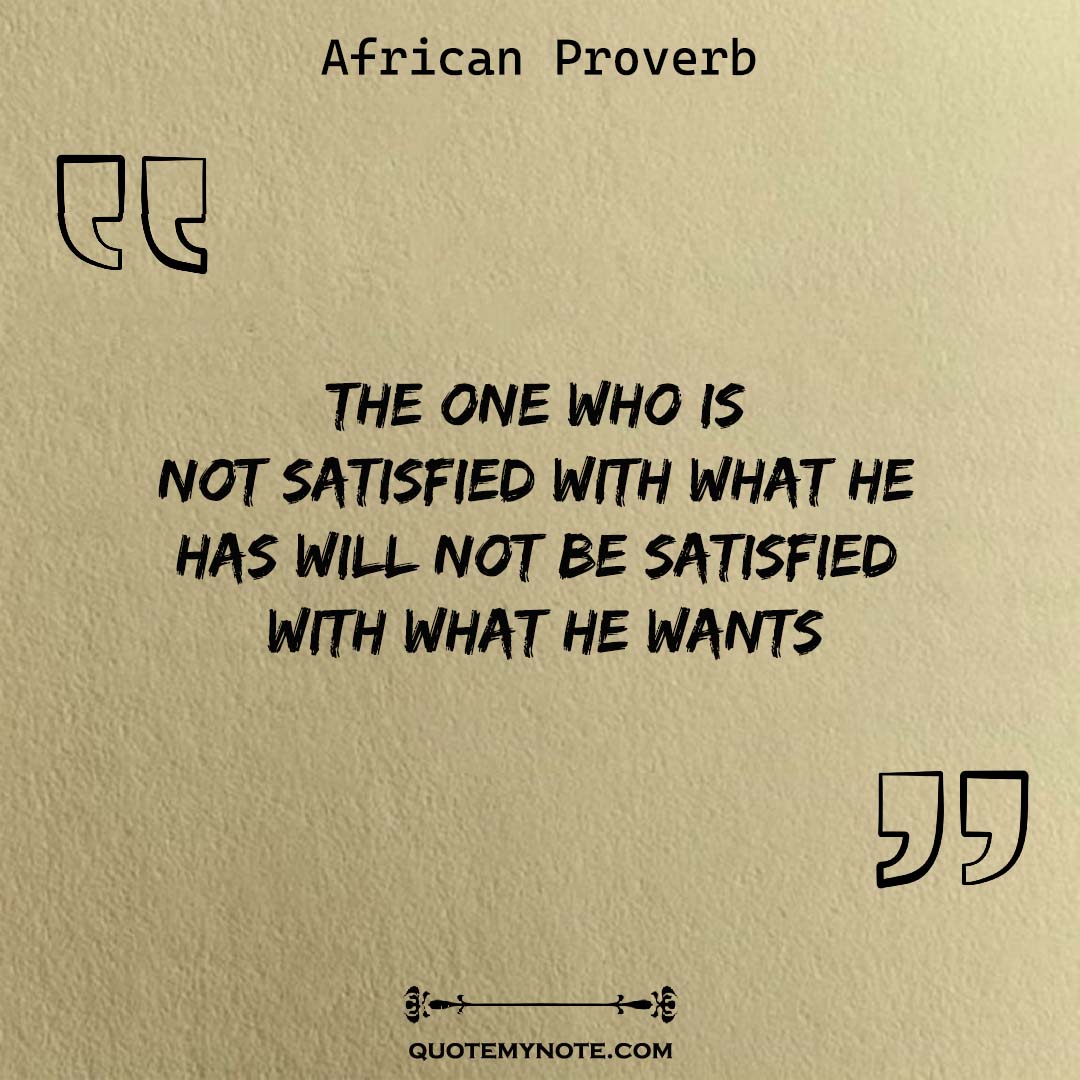
- "The one who is not satisfied with what he has will not be satisfied with what he wants." (Ethiopia) - Meaning: Being content with what you have is essential for happiness.
- "A tree is known by its fruit." (Ghana) - Meaning: A person's character is revealed by their actions.
- "When the drums beat, the dancers move." (Cameroon) - Meaning: When the time is right, people will respond accordingly.
- "The one who does not know where he is going will never get there." (Mali) - Meaning: Having a clear direction and purpose is essential for achieving your goals.
- "A single grain of millet will not make a meal." (Tanzania) - Meaning: One small action or effort is not enough to achieve success.
- "The one who is patient will eat ripe fruit." (Uganda) - Meaning: Patience and perseverance will ultimately lead to success and reward.
Conclusion
African proverbs are a testament to the richness and diversity of African cultures. These ancient sayings continue to inspire, educate, and guide people across the continent and beyond. As we reflect on the history of African proverbs, we are reminded of the importance of preserving our cultural heritage and the wisdom it embodies.